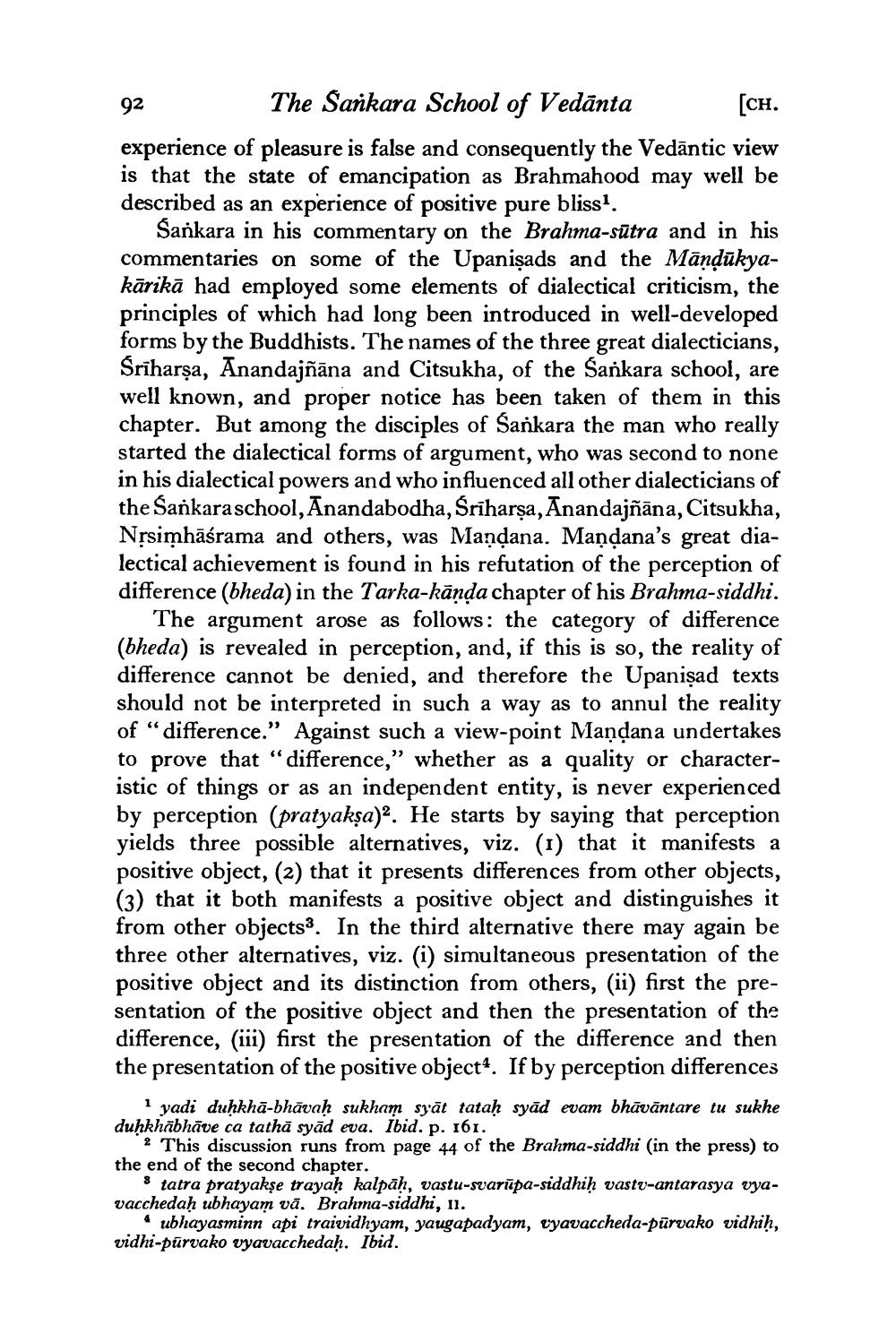________________
92
[CH.
The Sankara School of Vedānta experience of pleasure is false and consequently the Vedāntic view is that the state of emancipation as Brahmahood may well be described as an experience of positive pure bliss".
Sankara in his commentary on the Brahma-sūtra and in his commentaries on some of the Upanişads and the Māndūkyakārikā had employed some elements of dialectical criticism, the principles of which had long been introduced in well-developed forms by the Buddhists. The names of the three great dialecticians, Sriharşa, Anandajñāna and Citsukha, of the Sankara school, are well known, and proper notice has been taken of them in this chapter. But among the disciples of Sankara the man who really started the dialectical forms of argument, who was second to none in his dialectical powers and who influenced all other dialecticians of the Sankaraschool, Anandabodha, Śrīharşa, Anandajñāna, Citsukha, Nșsimhāśrama and others, was Maņdana. Mandana's great dialectical achievement is found in his refutation of the perception of difference (bheda) in the Tarka-kānda chapter of his Brahma-siddhi.
The argument arose as follows: the category of difference (bheda) is revealed in perception, and, if this is so, the reality of difference cannot be denied, and therefore the Upanişad texts should not be interpreted in such a way as to annul the reality of “difference.” Against such a view-point Maņdana undertakes to prove that "difference," whether as a quality or characteristic of things or as an independent entity, is never experienced by perception (pratyakşa)2. He starts by saying that perception yields three possible alternatives, viz. (1) that it manifests a positive object, (2) that it presents differences from other objects, (3) that it both manifests a positive object and distinguishes it from other objects. In the third alternative there may again be three other alternatives, viz. (i) simultaneous presentation of the positive object and its distinction from others, (ii) first the presentation of the positive object and then the presentation of the difference, (iii) first the presentation of the difference and then the presentation of the positive object*. If by perception differences
1 yadi duḥkhā-bhāvah sukham syāt tataḥ syād evam bhāvāntare tu sukhe duḥkhābhāve ca tathā syād eva. Ibid. p. 161.
2 This discussion runs from page 44 of the Brahma-siddhi (in the press) to the end of the second chapter.
3 tatra pratyakşe trayaḥ kalpāh, vastu-svarīpa-siddhiḥ vastu-antarasya vyavacchedah ubhayam vā. Brahma-siddhi, 11.
4 ubhayasminn api traividhyam, yaugapadyam, vyavaccheda-pūrvako vidhih, vidhi-pūrvako vyavacchedaḥ. Ibid.




